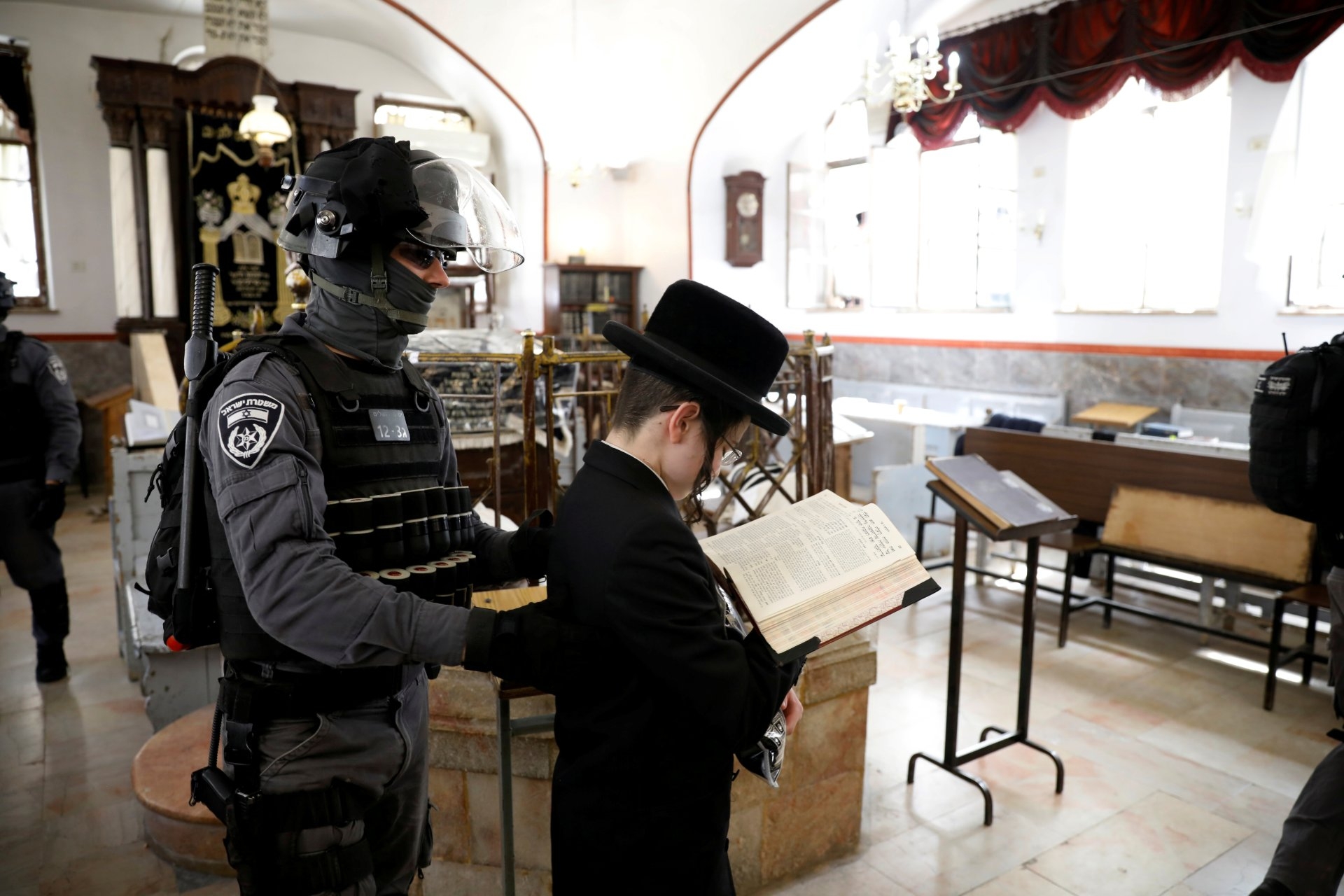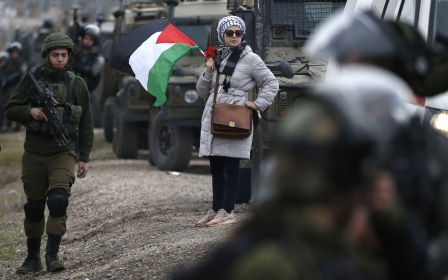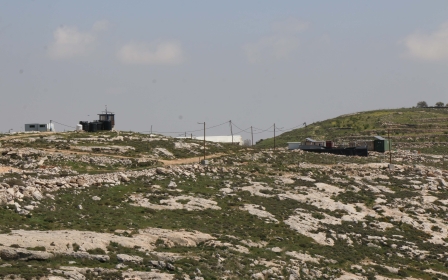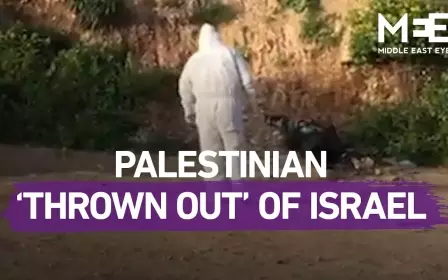Israel's military turns on its people as coronavirus panic sets in

After a few days of hesitation and delay, the Israel government decided on Tuesday to deploy 1,000 soldiers to patrol the streets, man barricades and be used as an auxiliary force to the national and border police.
Originally, the Israeli military intended the auxiliaries to carry their personal arms and gear. But the attorney-general intervened and modified the decision: only commanders and officers will be allowed to be armed.
Deploying soldiers in the streets is just another manifestation of the further militarisation of Israeli society under the shadow of the pandemic. There are more examples to illustrate this trend.
Two-thousand reserve soldiers from the military’s homeland command were recruited to manage hotels turned into quarantine centers in Tel Aviv and Jerusalem.
Yossi Cohen, the head of Mossad, Israel's intelligence agency, was appointed by Prime Minister Benjamin Netanyahu to be project manager of the efforts to procure medical supplies and equipment, which are in shortage.
Shin Bet, the domestic security service, is authorised to use its advanced surveillance methods to monitor people who are in contact or in proximity of persons infected by Covid-19. This decision revealed secret technological measures, which are based on mobile phones and the antennas that connect them.
These controversial measures, built to spy on Israel’s enemies, spies and terror suspects, are now used to spy on Israeli citizens. The police, too, want to be permitted to use the same technology, thus further and deeper exposing Israeli citizens to infringement and abuses of their civil rights.
Another example of this phenomenon is the nomination of General Roni Numa, who recently retired from active service, to command the attempts to enforce isolation and curfew on the Ultra-Orthodox communities. The Ultra-Orthodox refuse to serve in the army, a duty which is mandatory for most, or to take part in any other tasks of national service.
They account for 12 percent of Israel’s 8.6 million population, but their share among the 5,000 Israelis already infected by the virus is much higher, nearly 40 percent.
This is a direct result of many in their community refusing to follow the instructions, which include maintaining a social distance, locking down schools and synagogues, and banning weddings and other mass gatherings.
Seemingly there is nothing wrong that in time of mega-crisis – being it a war, epidemic or national disaster – nations mobilise all their human and physical resources, including the military muscle. Many countries around the world struggling with the virus are sending their military personal to assist healthcare systems and other civilian services.
However, Israel has walked farthest than any other nation. Even though the country has so far witnessed “only” 20 deaths, it has been relatively less affected by the virus.
Yet, it’s the only western-style democracy which permits its security and espionage services to be involved in the battle against the worldwide epidemic.
Unlike other western countries, it's the only one that uses surveillance methods against its own people, and the only to base its decisions to tackle the crisis on emergency laws, which are outdated and hark back to the British Mandate during the Second World War.
This current situation is not surprising. In a sense it is the fulfilment of renowned intellectual Yesahayau Leibowitz’s long-sighted vision and deep insights into Israeli society and its trends.
Days after Israel was in a euphoric mode following the 1967 war, in which Israel occupied the West Bank, Gaza Strip, Golan Heights and Sinai, the latter of which was returned to Egypt in the ’80s, his warnings were like words spoken by the ancient Hebrew prophets. Liebowitz warned that the occupation would turn Israel into a “Shin Bet state”.
He meant to say that the measures, tactics and rationale used by the government to justify the oppression of Palestinians would eventually one day turn against Israeli citizens.
The decline of Israeli democracy didn’t happen overnight. It started in monitoring the Palestinians in the West Bank and Gaza, slowly over many years “spilling over” and spreading inside Israel itself.
The deterioration of democratic values has worsened since 2009 when Netanyahu came to power for a second time, and especially in the last five years. His authoritarian tendencies are exposed almost every day.
Even before that Israel, surrounded by enemies and fighting many wars, has lived by its sword. Sociologists argue that it has developed a “siege mentality”.
The military always played a major role in its society. Military personnel have been worshipped, idealised and idolised. Retired generals and former security service officials had a preference to occupy top jobs in all walks of life: politics, economy and even education.
Now as the coronavirus crisis increases its grip on society, so the military increases its involvement.
This article is available in French on Middle East Eye French edition.
Middle East Eye delivers independent and unrivalled coverage and analysis of the Middle East, North Africa and beyond. To learn more about republishing this content and the associated fees, please fill out this form. More about MEE can be found here.




